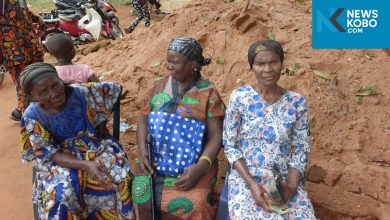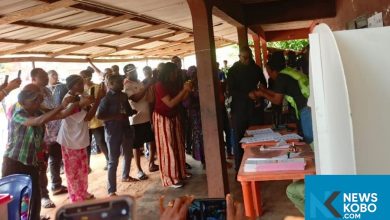Voter Turnout in Anambra Drops by 58% Despite Rising Registration
The Kimpact Development Initiative has warned of worsening voter apathy in Anambra despite rising registration figures.
It said turnout has dropped by over 58% in eight years, citing insecurity and poor logistics.
The Kimpact Development Initiative (KDI) has raised concern over a major decline in voter participation in Anambra State, revealing that turnout has fallen by more than 58% in the last eight years, even though voter registration continues to rise.
The Executive Director of KDI, Bukola Idowu, said the group’s research under the Strengthening Electoral Accountability Project showed that while more citizens are registering to vote, fewer are showing up on election day. She described the trend as a sign of deepening voter apathy and loss of trust in the electoral process.
Idowu explained that KDI assessed several factors, including voter turnout, election logistics, INEC’s preparedness, and security risk mapping. She noted that despite Anambra North having the highest number of registered voters, it has consistently recorded the lowest turnout.
According to her, insecurity and geographical challenges in riverine areas such as Anambra East, Anambra West, and Ogbaru have made voting more difficult. She added that although Anambra South faces greater insecurity, it still records higher participation, suggesting that other factors, such as logistics, also discourage voters in the North.
The group warned that if these challenges are not addressed, the state could experience another round of low turnout in the governorship election.
KDI also assessed INEC’s operational readiness and observed that training for ad-hoc staff ended just two days before the election, leaving little room for mock drills or staff replacements. This, it noted, contrasts with the 2024 Ondo election, where preparations were completed earlier.
On security, the group identified Aguata and Ihiala as severe-risk areas, while Nnewi North, Nnewi South, and Ogbaru were classified as high-risk. It cautioned that these places could face disruptions or violence unless proactive steps are taken by security agencies.
Idowu called for visible but non-threatening security presence, rapid response coordination, and effective communication to ensure the safety of voters, officials, and materials across all 21 local governments.
She urged residents to come out peacefully, avoid vote-buying, and participate actively in the electoral process. KDI said it would continue to monitor events through its Nigeria Election Violence Education and Resolution (NEVER) Project and issue updates during and after the polls.
According to the group, the credibility of the election will depend on transparent procedures, timely logistics, and restraint by political actors.



